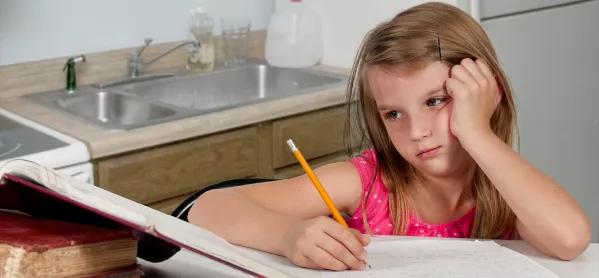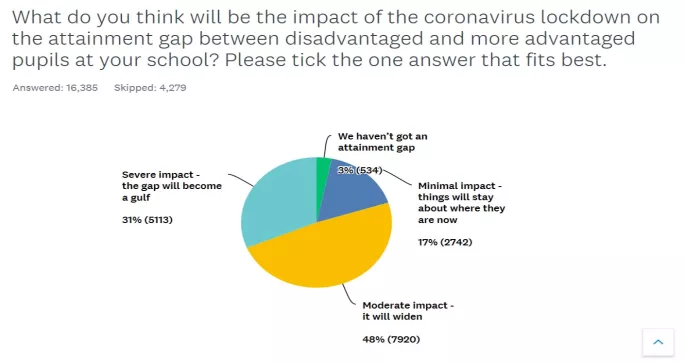Nearly four-fifths of teachers and school support staff say the attainment gap between poorer pupils and their peers is widening as a result of lockdown partial school closures.
And just under a third believe it is becoming “a gulf”, a Tes survey of more than 16,000 school staff across the UK has revealed.
Many respondents gave reasons such as cramped living conditions, lack of parental support or lack of online learning equipment resources as reasons why disadvantaged pupils were slipping further behind.
Exclusive: DfE lockdown help for poorer pupils ‘has little impact’
News: Fears about vulnerable pupils during lockdown
Read: Uptake of school places for vulnerable ‘very low’
“Hungry children don’t concentrate well and children who are looking after younger siblings don’t have the chance to do their work,” said one teacher.
“It is getting worse,” a respondent warned. “As a 45 per cent deprivation school, it is the 45 per cent who are not participating meaningfully in home learning.”
Another said: “We are finding that our disadvantaged children are less likely to complete work set, and parents are often struggling to help them.”
The findings come as Tes begins a series of Closing the Covid gap reports on the challenges faced by schools in helping vulnerable and disadvantaged pupils catch up as they come out of lockdown.
Prior to lockdown, research by the Education Policy Institute found that the learning gap was the equivalent to 18 months’ development for a 16-year-old disadvantaged student, and just over nine months’ for a pupil leaving primary school.
Only 17 per cent of respondents in the Tes survey - carried out during school closures - said the lockdown would have a “minimal impact” on the gap, while 3 per cent denied the gap existed.
Nearly 60 per cent of school staff thought the Department for Education’s attempt to lessen the damage of lockdown to poorer pupils’ learning would have no more than a minimal impact.
One respondent said: “Those from more vulnerable groups who don’t have support and don’t know how to work by themselves, or perhaps don’t have anywhere to do it, are just going to be falling behind, and when we return to normal I think it will take these pupils a long time to get back in the swing of things (academically and behaviourally) when working for five hours a day when they’ve been able to do what they want for months.”
And another said: “The government were too slow in responding to this need for [computer] devices. This should have been in place a lot earlier.”
A Department for Education spokesperson said: “We will do whatever we can to make sure no child, whatever their background, falls behind as a result of coronavirus.
“The government has already committed over £100 million to support children to learn at home, and pupil premium funding continues to be paid at the highest ever rate per pupil while schools are closed to help them support their disadvantaged pupils.
“We have set out plans to begin opening schools to more pupils from 1 June at the earliest in line with scientific advice. We are also considering, with a range of partner organisations, what more is required to support all pupils who have been affected by school closures.”






